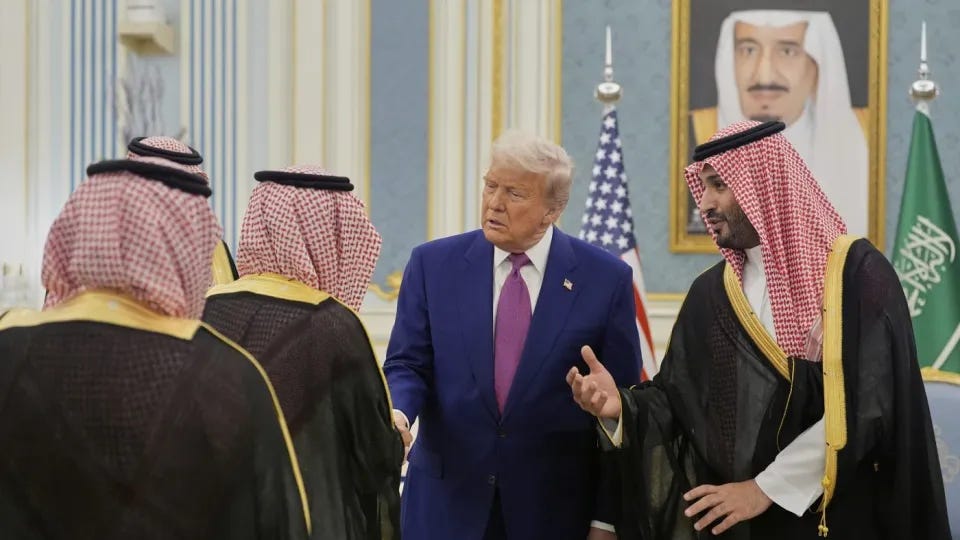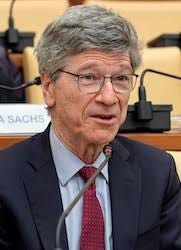
What a week!
Trump threatens to end arms shipments to Israel and recognize a Palestinian state. He reaches a ceasefire deal with the Houthis that doesn’t restrict them from targeting Israeli shipments. He then meets with Syrian President Ahmad al-Sharaa and lifts all sanctions on Syria. He negotiates a thaw in the trade war with China, moves the U.S. closer to a negotiated end to the proxy war in Ukraine, and calls on India and Pakistan to de-escalate.
Does this represent a significant shift in U.S. foreign policy? Yes, of course.
Are Netanyahu and Zelensky toast? Yes for Bibi. Maybe for Z.
While Trump’s approval ratings remain underwater, they have ticked up a few points following his trade-war retreat. Democrats, not so much.
While some analysts view this shift as “isolationist”, I don’t. Instead, I think it reflects a strategic recalibration forced upon him by a revolt within his own base of disappointed workers, farmers who were stung by the trade war with China, and some powerful corporate interests. It’s aimed at maintaining U.S. influence in a multipolar world, particularly in response to China's growing global presence.
In this interview with Judge Andrew Napolitano, economist Jeffrey Sachs suggests that President Trump may recognize Palestine as a UN member state, potentially leading to significant changes in Middle East policy and the downfall of Israeli Prime Minister Netanyahu. This speculation is based on a reported statement from a closed session of the Knesset Foreign Affairs and Defense Committee, where Netanyahu mentioned weaning off American military aid, indicating a shift in U.S. foreign policy.
Writing in Al Jazeera, Sachs explains:
The stakes could not be higher. The US would receive a windfall of investments. The Middle East would achieve normalcy and the basis for a surge of economic development, and both Israel and Palestine would live in peace.
The reality of all this will be revealed in the coming weeks.




